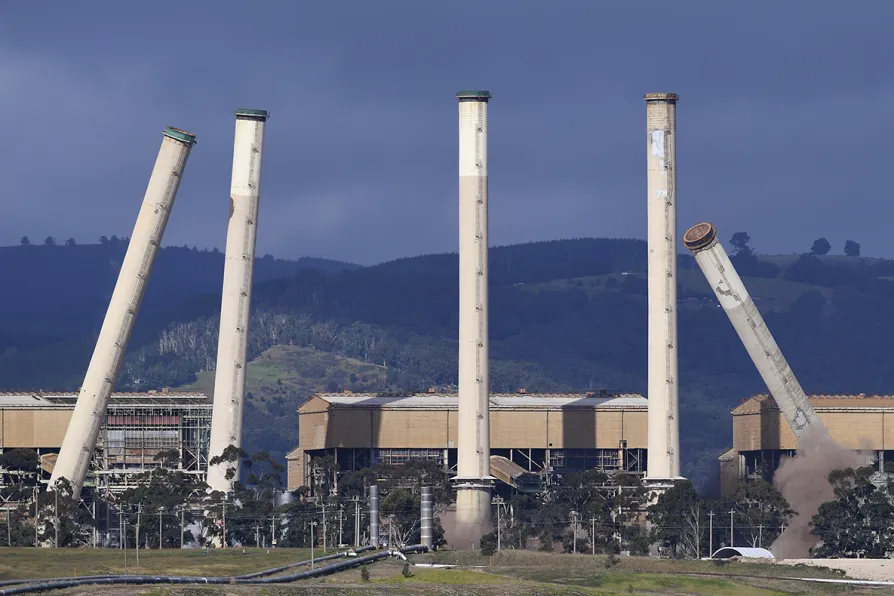
 Some of the coal-burning Hazelwood Power Station's eight chimneys begin to topple as they are demolished and the station is decommissioned in Hazelwood, Victoria, on May 25, 2020
Some of the coal-burning Hazelwood Power Station's eight chimneys begin to topple as they are demolished and the station is decommissioned in Hazelwood, Victoria, on May 25, 2020
THE Australian government took a major step today towards implementing a key climate policy that would force major greenhouse gas polluters to reduce emissions.
The governing Labour Party said the so-called Safeguard Mechanism reforms are essential for Australia to reach its target of reducing emissions by 43 per cent below 2005 levels by the end of the decade.
The reforms would create a ceiling on the nation’s emissions and force Australia’s 215 biggest polluting facilities to reduce the nation’s greenhouse gas emissions by 205 million metric tons by 2030.

Money makers already exploit cleaning and catering contracts while the military-industrial complex diverts billions from health to warfare — but Bevan’s vision will endure as long as people fight for it, writes ROGER MCKENZIE

ROGER McKENZIE looks at the gradual demise of US’s nefarious influence around the world and the complexity of impending freedom















